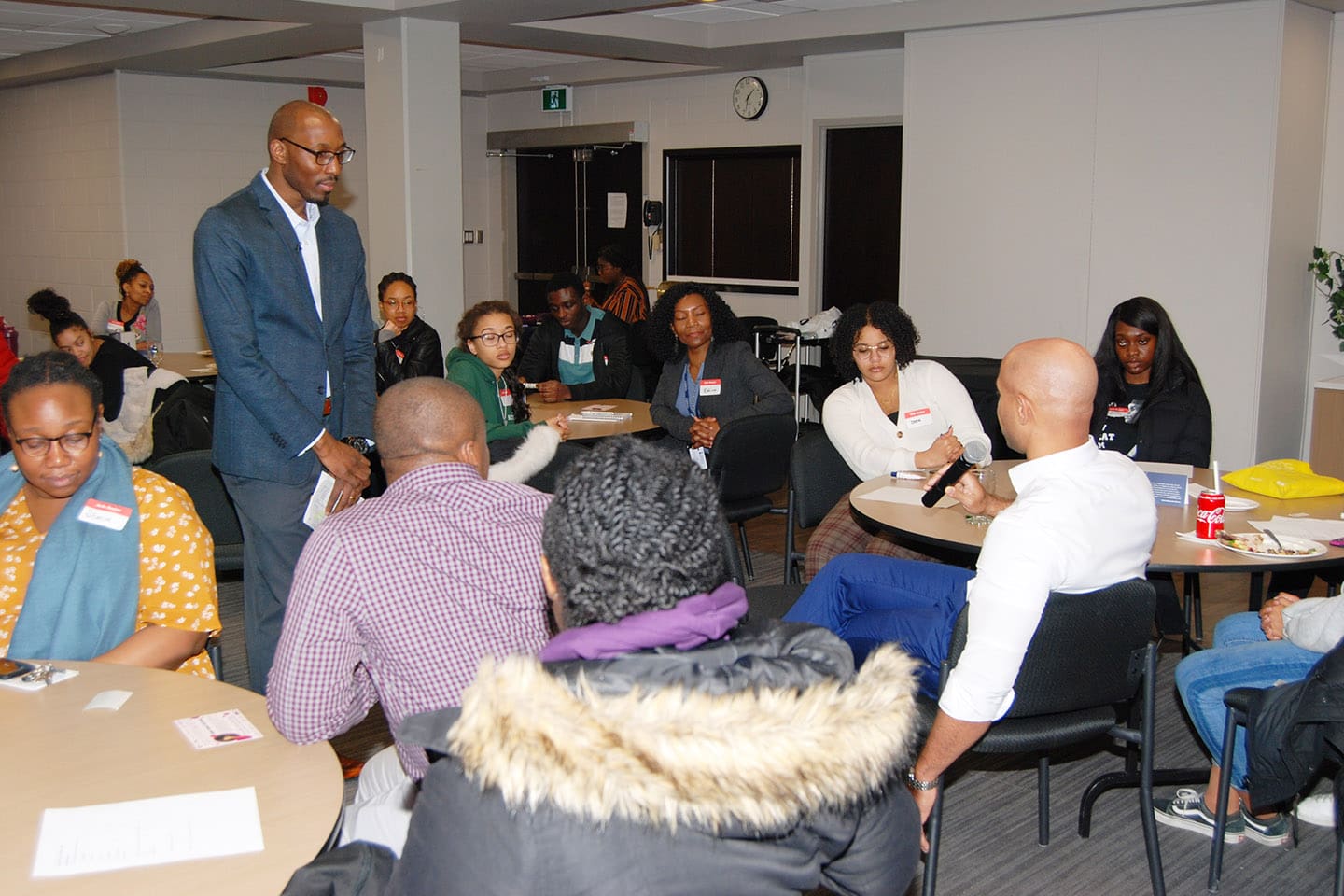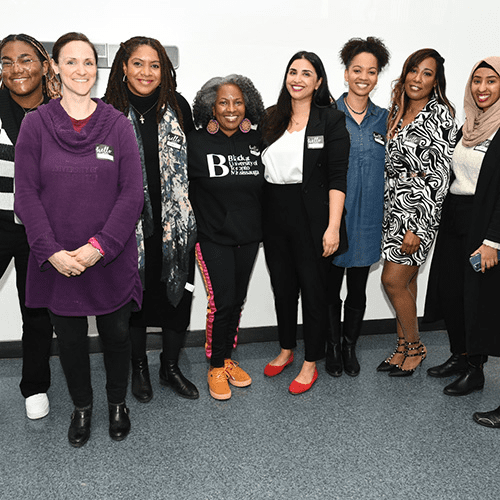Resources
Whether you are a student, researcher, or job seeker, we have a wide range of resources and opportunities tailored to your needs. Explore our various club and group offerings, connect with like-minded individuals, and find a safe space to empower yourself.


U of T Telus Health Student Support provides students with real-time and/or appointment-based confidential, 24-hour support for any school, health, or general life concern at no cost to you. You can call or chat with a counsellor directly from your phone whenever, wherever you are.
Primary Audience: Current students

The UTM Anti-Black Racism Operational Group was assembled in 2021 as a local response to the University of Toronto’s Anti-Black Racism Task Force Recommendations. The group consists of students, staff, faculty, and librarians who offer guidance and encouragement to academic and administrative units advancing anti-racist work in their respective portfolios. For specific details and regular updates on how UTM is addressing Anti-Black Racism, please visit our accountability dashboard.
Additional Resource: https://www.utm.utoronto.ca/edio/solidarity-black-communities
Additional Resource: https://commitments.utoronto.ca/
Dashboard: https://dashboardblack.utm.utoronto.ca/
Primary Audience: Students, faculty, and staff

An international organization that works closely with low-income communities to tackle various medical, educational, and developmental problems. UTM Medlife works closely with MEDLIFE headquarters to coordinate projects in South American and African communities abroad and develop various fundraising campaigns.
Instagram: https://www.instagram.com/utm.medlife/
Twitter: https://twitter.com/utm_medlife
Primary Audience: Any students with a passion for community service, global interests, and humanitarian interests

In the UTSC Campus Curriculum Review, “Black Knowledges” is understood as Africentric critical and pedagogical approaches that resist and disrupt the violent erasure of Black history through slavery and colonialism, including in academic contexts, by reframing those historical narratives and foregrounding the experiences and contribution of Black individuals and communities.
Among the collective of Black knowledges, there are stories rooted in trauma, connected to institutional oppression, and there are historical and contemporary narratives of resistance, creativity, and being. This section is intended to find a balance that acknowledges the presence, humanity, and flourishing of Blackness in a context too often rooted in the absence and problematic stereotypes.
Primary Audience: Students, Staff, Faculty, Community
